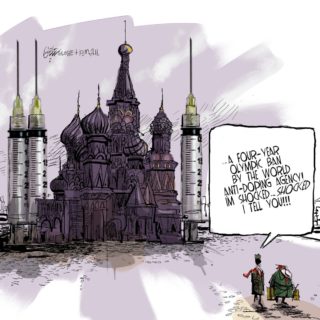The United Nations refugee chief says the world is headed toward an unprecedented displacement of 100 million people as Russia’s war in Ukraine forces refugees to flee at an overwhelming pace.
Filippo Grandi issued the warning during a press conference on Parliament Hill on Wednesday. The head of the UN refugee agency is in Ottawa meeting with government officials, including Prime Minister Justin Trudeau and Immigration Minister Sean Fraser.
Speaking at a joint press conference alongside Mr. Fraser, Mr. Grandi said that as of Feb. 24, the UN refugee agency counted 84 million refugees and displaced people worldwide, adding that number has likely grown to between 90 and 95 million since Russia invaded Ukraine.
“We are moving toward maybe having 100 million uprooted people around the world. We thought that it will take many years to get there and maybe we would never get there, but unfortunately this war is getting us closer,” Mr. Grandi told reporters.
The high commissioner added that resources for humanitarian responses and resettlement become “more and more difficult” to mobilize as the global displacement numbers rapidly increase, and that some refugee crises may be neglected as a result.
Mr. Grandi applauded Canada’s response to the growing number of refugees crises globally.
In 2015, the Liberal government campaigned on a promise to resettle thousands of Syrian refugees. The dedicated Syrian resettlement program was launched soon after Mr. Trudeau took office, initially committing to welcome 25,000 people. To date, more than 80,000 Syrians have sought refuge in Canada.
The government opened a similar dedicated refugee stream for Afghans last year, promising to resettle 40,000 refugees. As of March 31, 10,025 Afghans have arrived in Canada.
The slow resettlement process for Afghans has caused concern among the opposition parties, especially as the government offers Ukrainians an expedited pathway to Canada through special immigration measures. The program, officially launched last month, has raised questions about why Ukrainians can be fast-tracked to Canada but refugees from other countries continue to face the long wait times that have bogged down the country’s immigration and refugee resettlement system for years.
On Tuesday, the House of Commons immigration committee passed a motion calling on Mr. Fraser to extend the special immigration measures recently granted to Ukrainians to other regions facing humanitarian crises, such as Afghanistan, Yemen and Hong Kong, as well as to Rohingya refugees from Myanmar. The special measures include expanding Canadian biometric collection capabilities in neighbouring countries and granting temporary resident permits and single journey travel documents to people without passports.
The committee also called on the government to allow displaced people in third countries, such as Afghans and other refugees in Ukrainian refugee camps, to seek refuge in Canada, and make the measures available to Afghans in Afghanistan.
“Given that time is of the essence, and many people are in need of assistance, such as Afghans fleeing the Taliban in Afghanistan, the committee calls on the Minister of Immigration to immediately act on the measures noted in the motion to ensure that Canada’s response to ongoing humanitarian crises in different regions are treated with the same vigour as Ukraine,” read a news release from the committee Wednesday.
Mr. Fraser’s spokesperson, Aidan Strickland, said the committee’s findings and discussions are “duly reviewed and considered,” but would not say whether the government will implement any of the motion’s requests.
“We will continue to look at more ways that Canada can settle refugees, complementary to our resettlement efforts. Each situation is unique and should be considered as such to ensure that Canada is responding accordingly,” said Ms. Strickland.
The motion was made nearly two weeks after the opposition parties accused the Liberals of creating a two-tiered, racialized system that prioritizes Ukrainian immigrants over refugees from other conflict zones, including Afghanistan. Speaking to the committee on March 24, Mr. Fraser said the situation in Ukraine demands a different response, as Ukrainians can travel to other countries for processing more easily than Afghans.
The special Ukrainian immigration program eliminates most of the normal visa requirements and allows Ukrainians to stay in Canada for up to three years if they pass security checks. Since the measures are offered through the immigration stream, Ukrainians are not considered refugees.
Speaking to reporters Wednesday, Mr. Fraser said the government has received more than 112,000 applications to the streamlined Ukrainian immigration program and it has approved more than 26,500 of those applications. However, many Ukrainians have yet to arrive. Canada’s border agency says 8,471 Ukrainians arrived in Canada between Feb. 21 (the week the war began) and April 3.
MICHELLE CARBERT
The Globe and Mail, April 6, 2022

